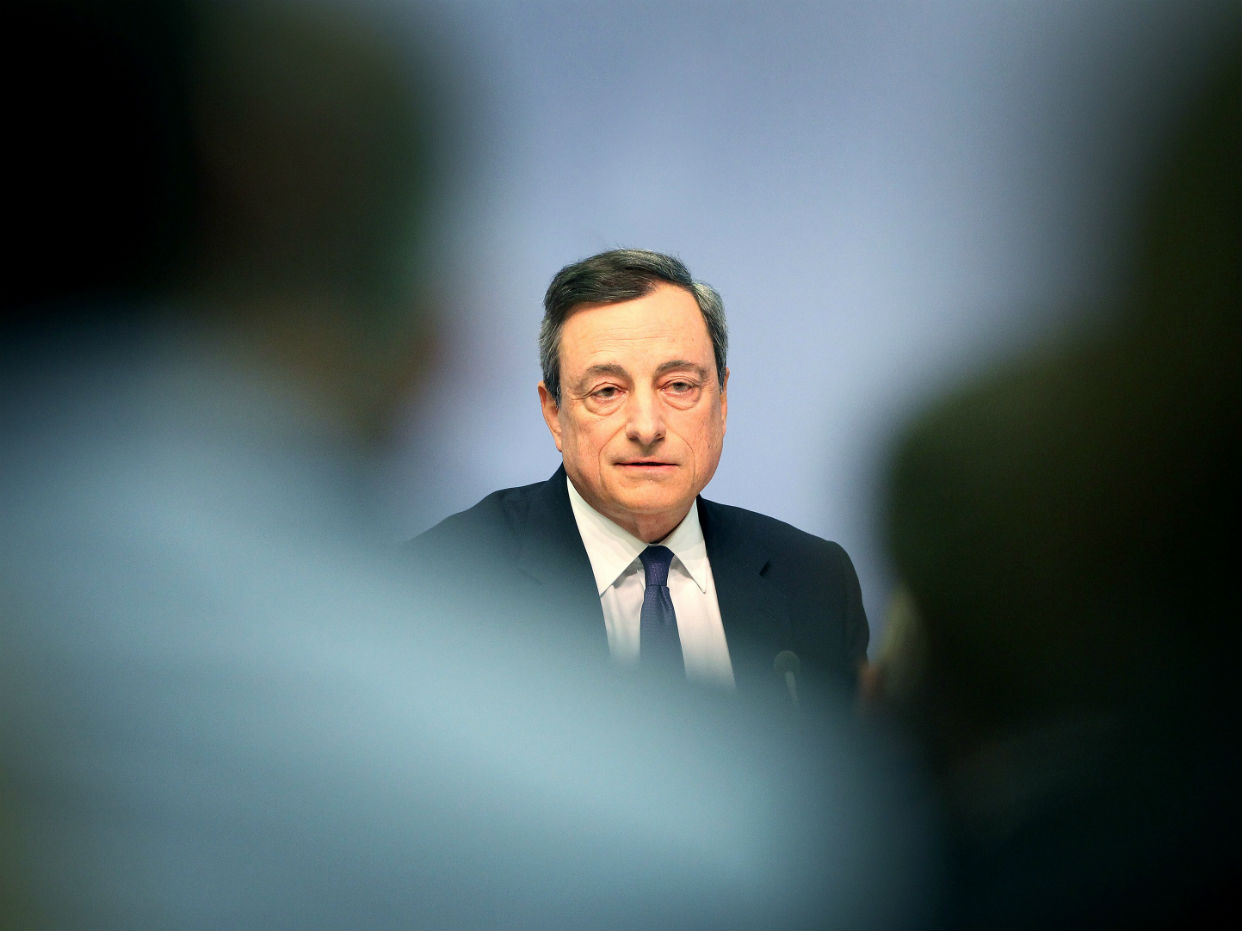What is Mario Draghi’s legacy?
ECB president hailed as saviour of the euro but concerns linger over the impact of his unconventional monetary policies

A free daily email with the biggest news stories of the day – and the best features from TheWeek.com
You are now subscribed
Your newsletter sign-up was successful
Mario Draghi will step down as president of the European Central Bank next week, having overseen the most tumultuous period in the eurozone’s history and, some would say, saved the euro.
The eurozone crisis was in full swing when Draghi took over in November 2011. The global financial crisis of 2008-9 had precipitated an existential crisis in Europe, fuelled by debt, bailouts, austerity and civil unrest.
Greece came close to exiting the euro while two of Europe’s biggest economies - Italy and Spain - teetered on the brink of defaulting, either of which could have been fatal for EU cohesion.
The Week
Escape your echo chamber. Get the facts behind the news, plus analysis from multiple perspectives.

Sign up for The Week's Free Newsletters
From our morning news briefing to a weekly Good News Newsletter, get the best of The Week delivered directly to your inbox.
From our morning news briefing to a weekly Good News Newsletter, get the best of The Week delivered directly to your inbox.
Into this maelstrom stepped Draghi, who, with typical bravado, promised that the “ECB is ready to do whatever it takes to preserve the euro. And believe me, it will be enough.”
“The effect of the ‘whatever it takes’ pledge is electric,” says Fortune. “It is, perhaps, the last time that global markets ever take a central banker at his word and bet the shop on it. Billions of euros that have been betting against the euro and Italy now find even bigger sums propping it up. A resounding blast of clarity, confidence and optimism sweeps through a world racked by doubt and fears of a new Depression.”
The ECB’s plan involved the threat to buy government bonds or debt, which managed to bring borrowing down to manageable levels. In a bid to keep inflation around 2%, the bank introduced a programme of quantitative easing and cut interest rates to below zero.
His actions earned the European Central Bank president the nickname of ‘Super Mario’. In his eight years in charge, he “changed the way monetary policy is conducted in the eurozone” says CNBC. The ECB “moved from being a central bank modelled after the German Bundesbank to a modern, Anglo-Saxon type organisation”.
A free daily email with the biggest news stories of the day – and the best features from TheWeek.com
–––––––––––––––––––––––––––––––For a round-up of the most important business stories and tips for the week’s best shares - try The Week magazine. Get your first six issues for £6–––––––––––––––––––––––––––––––
Draghi’s legacy is “a bigger, cheaper, quirkier market”, writes Tasos Vossos in Bloomberg.
“He is widely credited with saving the eurozone by pushing the ECB’s powers to their limit in 2012 during the depths of the region’s debt crisis,” says the Financial Times. “But the praise has been mixed with criticism from those worried about the impact of his unconventional monetary policy”.
While the eurozone economy has been growing continuously since 2013, growth has remained sluggish. German news outlet DW says Draghi has “fallen far short” on unemployment. “Germany has had sound job creation,” he says, “but this actually started before Draghi's term. France is not far behind, but labor markets in Spain and Greece haven't made up the lost ground and no country has done worse than Draghi's native Italy in terms of total output per head.”
Meanwhile, the Purchasing Managers’ Index suggests that the manufacturing sector is contracting and that this weakness has started to infect the much larger services sector too.
The problem faced by Draghi successor, Christine Lagarde, is that many of the tools used in the past – such as QE and negative interest rates – cannot be deployed again.
She “will find her hands pretty much tied by Draghi’s last big policy package”, says CNBC, which promised further easing and stimulus until 2021.
Germany, Europe’s biggest economy, has been especially critical of Draghi, with his low interest rates labelled an attack on savers from successful economies.
So all in all “it's a rather mixed legacy that Mr Draghi will pass on”, says the BBC’s Andrew Walker. “There are plenty of challenges, which could include a recession fairly soon, and the ECB has little firepower left to respond. But it still is the eurozone and no countries have left it. When Mr Draghi took charge its future existence was not at all assured.”
Elliott Goat is a freelance writer at The Week Digital. A winner of The Independent's Wyn Harness Award, he has been a journalist for over a decade with a focus on human rights, disinformation and elections. He is co-founder and director of Brussels-based investigative NGO Unhack Democracy, which works to support electoral integrity across Europe. A Winston Churchill Memorial Trust Fellow focusing on unions and the Future of Work, Elliott is a founding member of the RSA's Good Work Guild and a contributor to the International State Crime Initiative, an interdisciplinary forum for research, reportage and training on state violence and corruption.